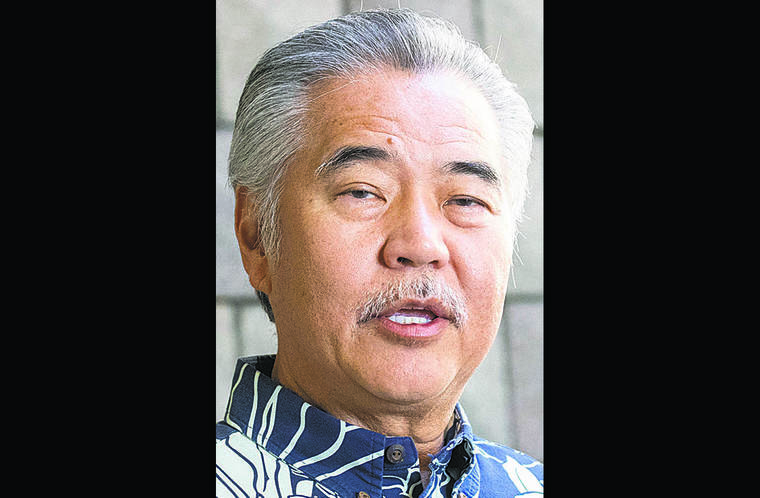A bill that would legalize the personal use of marijuana in Hawaii is still alive, but Gov. David Ige suggested Wednesday that he intends to veto it.
Senate Bill 767 is one of the only surviving marijuana-related bills passing through the state Legislature this session, and would, if passed, legalize the personal use, possession and sale of limited quantities of the controlled substance.
The latest draft of the bill would remove criminal penalties for possessing, growing or transporting up to six cannabis plants so long as no more than three are mature. People age 21 or older would also be allowed to transfer or sell up to 30 grams of cannabis, within certain restrictions.
Personal use of marijuana would also be legal for those 21 and older, although not on public highways or sidewalks or anywhere the consumption of alcohol is prohibited.
However, Ige said during a Wednesday interview that he does not think Hawaii should legalize marijuana as long as it remains a Schedule 1 federally controlled substance.
“I do think that it puts people in the community in jeopardy because they might think that it’s legal in Hawaii but if they cross a federal boundary, they do commit a federal offense from the federal government’s perspective, and I think that’s just not a good position to be in,” Ige said.
The bill has been overwhelmingly popular among testifiers during its journey through the Legislature. Written testimony by the Democratic Party of Hawaii’s Education Caucus noted that legalizing recreational cannabis could generate between $70 million and $100 million in tax revenue for the state.
The Drug Policy Forum of Hawaii, meanwhile, suggested that legalization could become a new driver of Hawaii tourism, attracting visitors from states where the substance remains illegal. Currently, the DPFH wrote, Hawaii residents themselves visit states such as Nevada, where marijuana is legal, for this reason.
The state Office of the Public Defender also supported the bill because it would free up resources for the criminal justice system to pursue “matters considered more serious by the community in general.”
However, a handful of state and county agencies oppose legalization. The Kauai and Maui police departments submitted testimony against the bill, calling the substance a “gateway drug” that increases the proliferation of other drugs.
The state Department of Transportation also opposed the bill on the grounds that it would likely increase the number of impaired driving incidents in the state.
While Ige did not definitively commit to vetoing the bill, he said he would have “big concerns” about signing such a measure if it makes it to his desk.
Hilo Sen. Laura Acasio, who co-introduced the measure, was critical of Ige’s reluctance in a statement.
“Sometimes the state has to take the lead,” Acasio wrote. “Hawaii did this with medical marijuana; we should be doing this now with the personal consumption of cannabis.”
The bill is currently referred to four committees in the House, and has to pass three of them by Friday.
Email Michael Brestovansky at mbrestovansky@hawaiitribune-herald.com.

